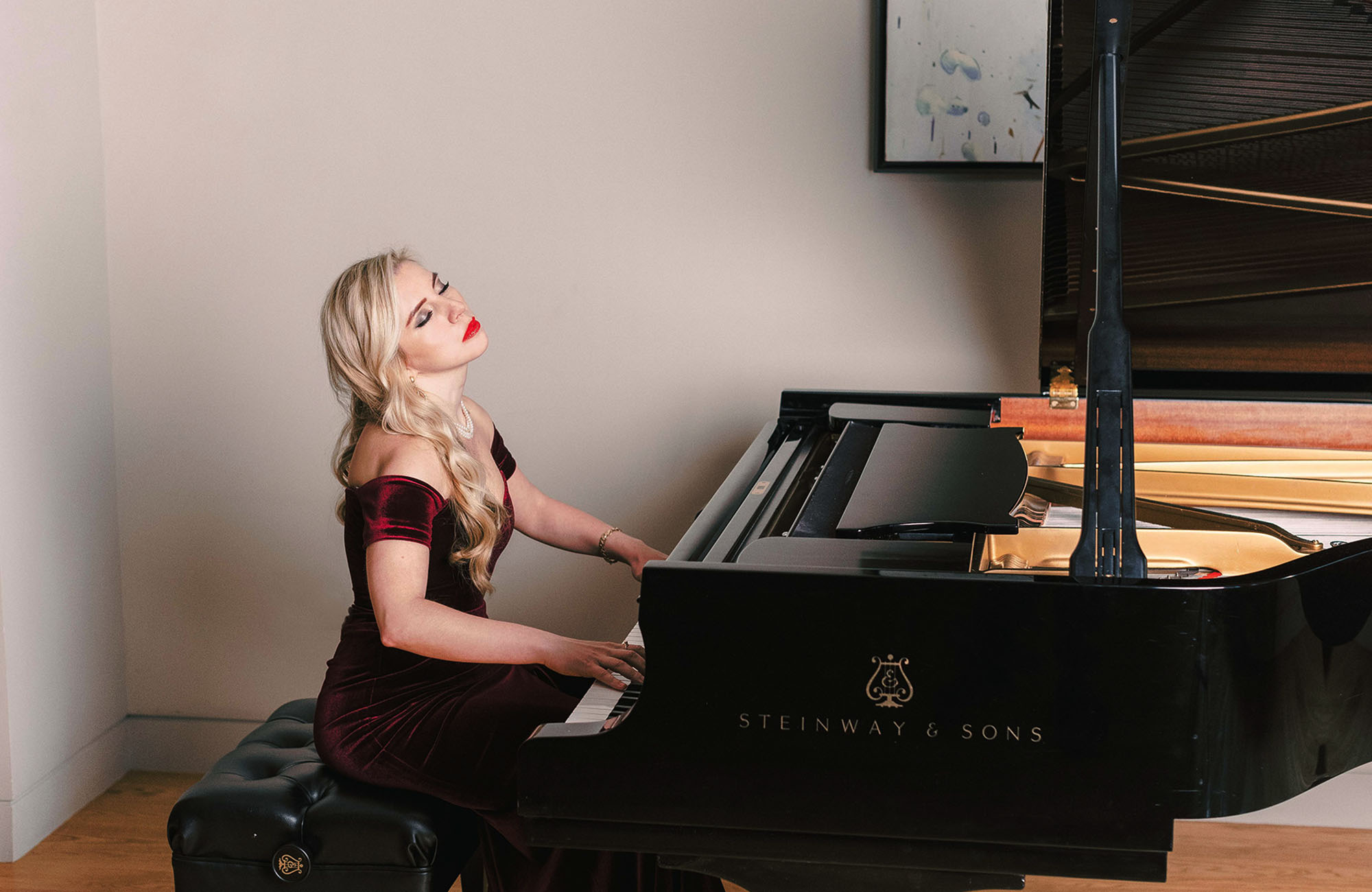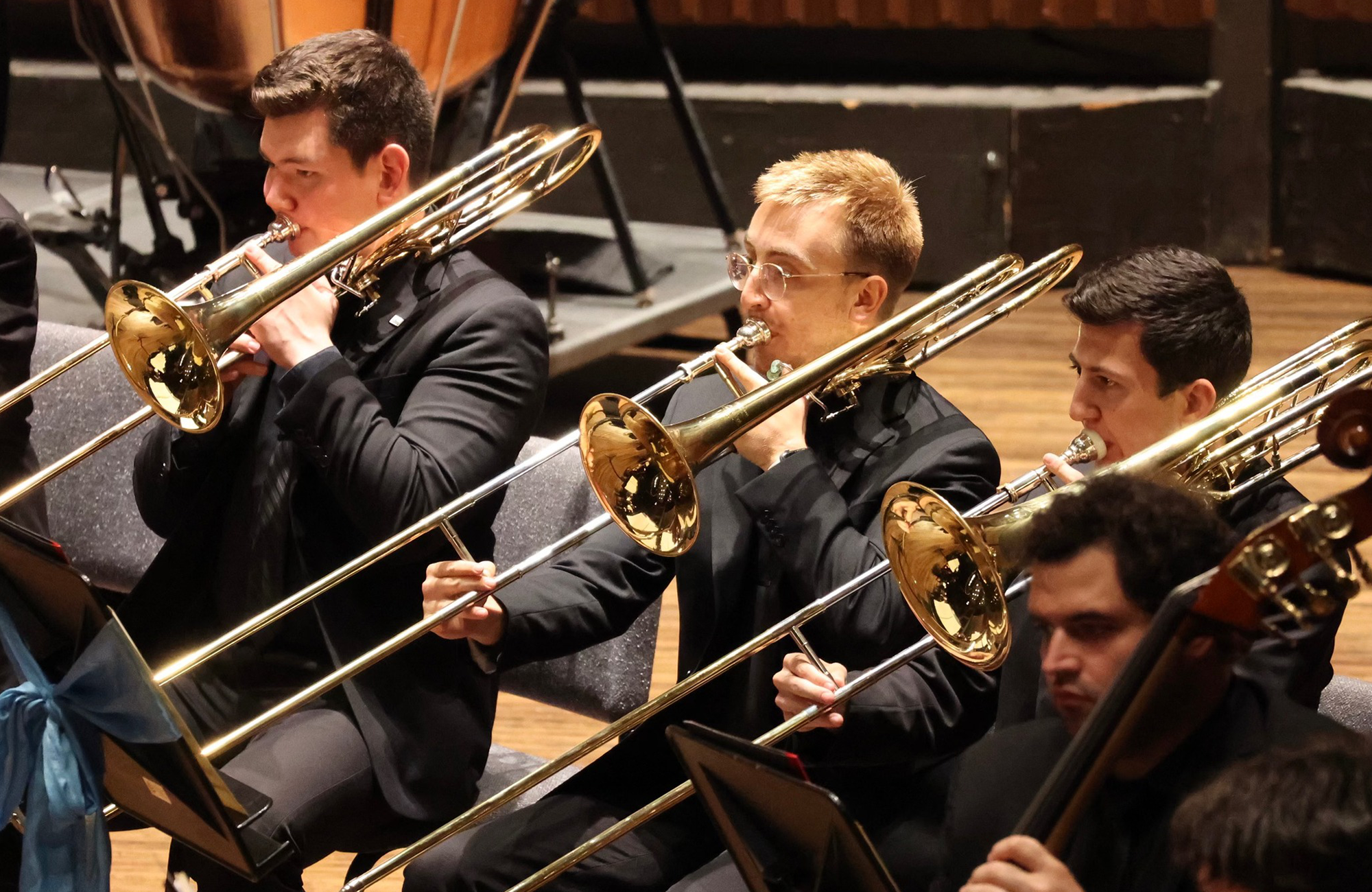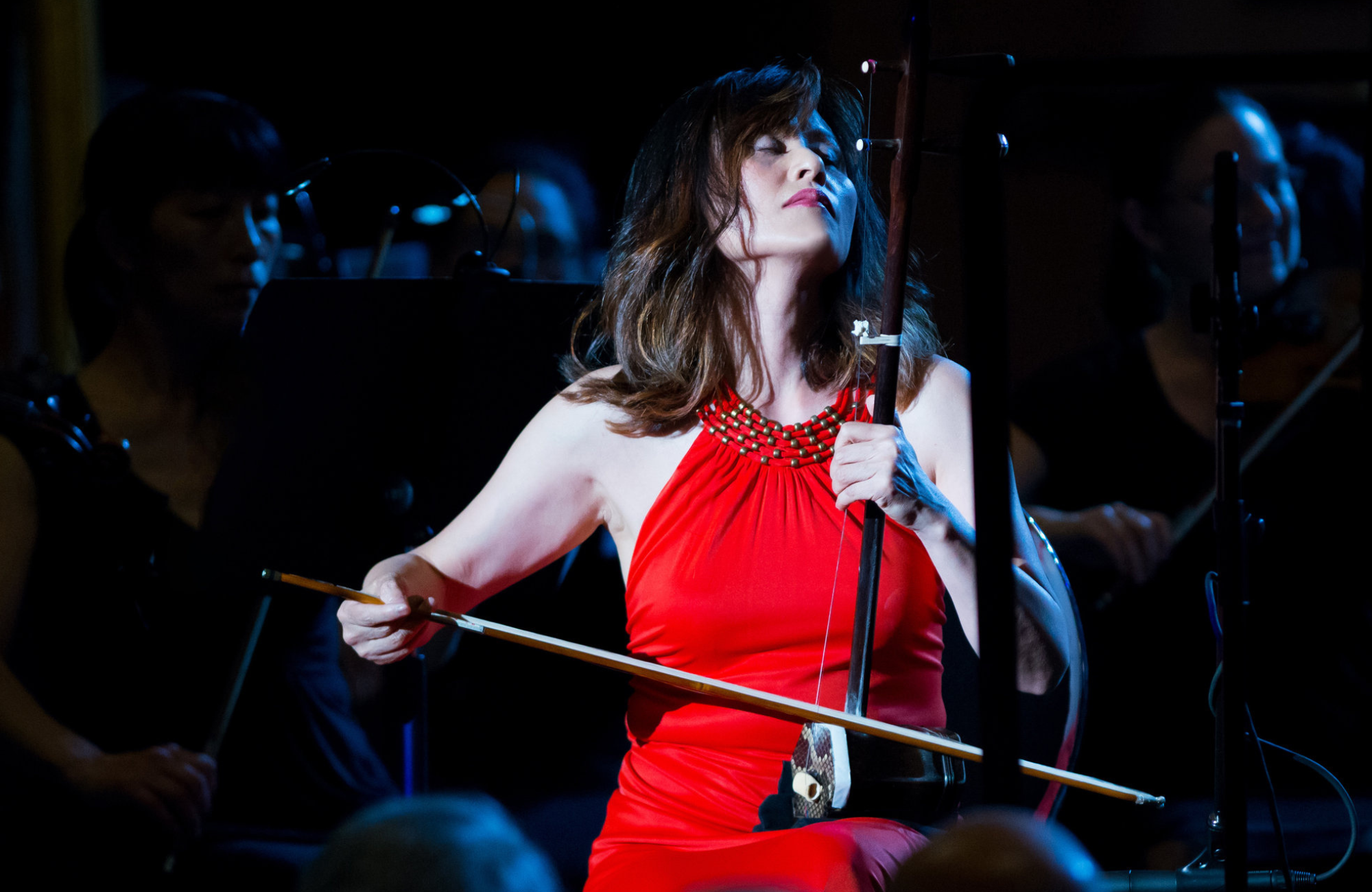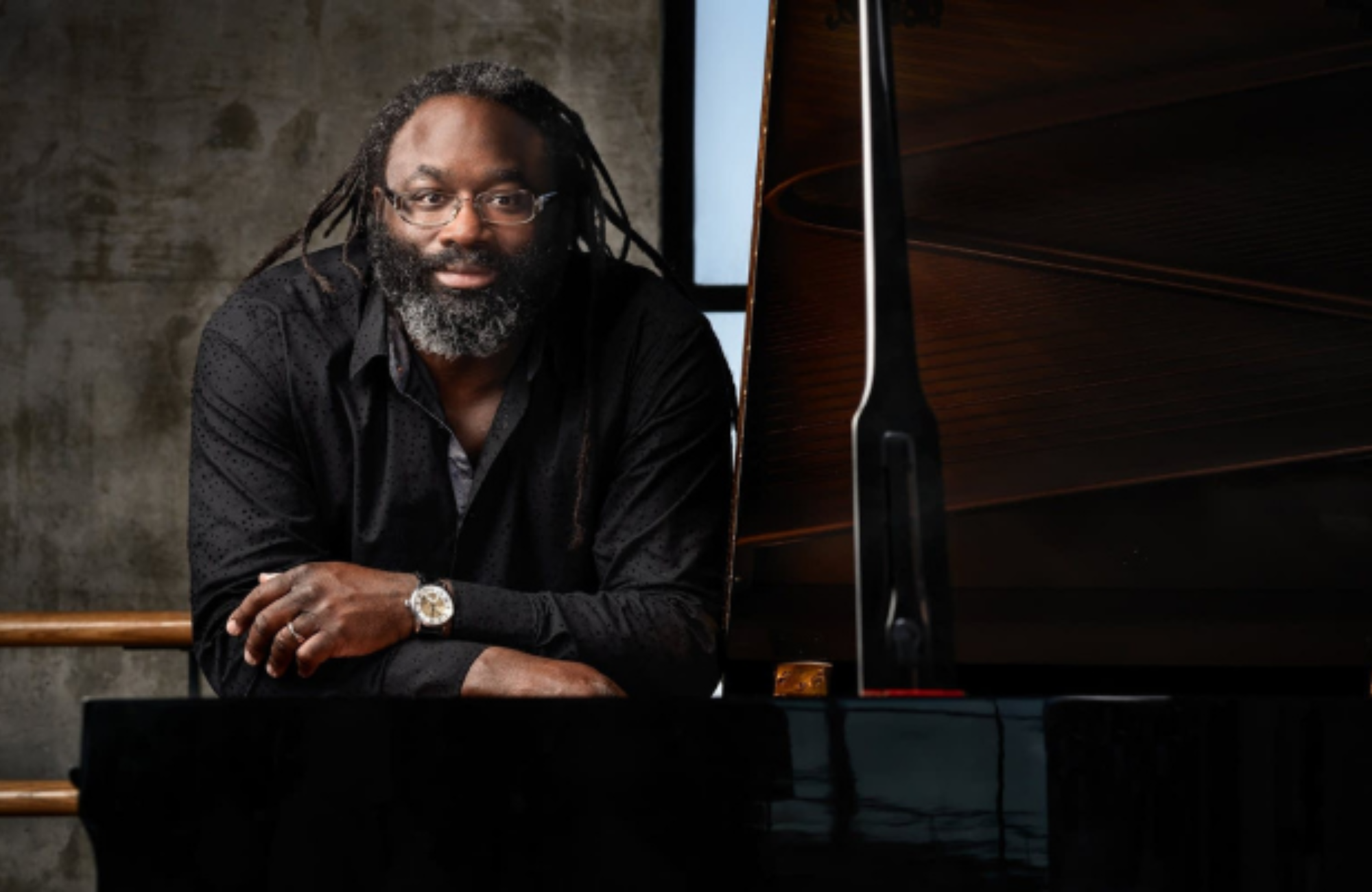Schubert’s mysterious Unfinished Symphony begins the concert, and after intermission, Natasha Paremski, fresh from her victorious performance at our 2019 Rachmaninoff Festival returns to Syracuse to share the Tchaikovsky Piano Concerto No. 1 with you.
PROGRAM
SCHUBERT: Symphony, D.759, B minor (Unfinished)
TCHAIKOVSKY: Piano Concerto No. 1 ![]()
Natasha’s performance of Tchaikovsky’s Piano Concerto No. 1 with the Royal Philharmonic Orchestra can be pre-viewed below.
All programs and artists subject to change.
PROGRAM NOTES
Our final concert of the season offers two of the most beloved works in the
repertoire—although, strangely, neither has shown up on a Symphoria concert until now. We
open with the Symphony No. 8 in B Minor (“Unfinished”) by Franz Schubert (1797–1828).
Composed in 1822, it was lost for decades until the manuscript was discovered, well after
Schubert’s death, in the study of one of his friends. Endless attempts to explain why it was left
unfinished have perhaps distracted us from what we do know: composed two years before the
Beethoven Ninth, the “...
Our final concert of the season offers two of the most beloved works in the
repertoire—although, strangely, neither has shown up on a Symphoria concert until now. We
open with the Symphony No. 8 in B Minor (“Unfinished”) by Franz Schubert (1797–1828).
Composed in 1822, it was lost for decades until the manuscript was discovered, well after
Schubert’s death, in the study of one of his friends. Endless attempts to explain why it was left
unfinished have perhaps distracted us from what we do know: composed two years before the
Beethoven Ninth, the “Unfinished” is the first of the great unambiguously romantic symphonies;
and even in this two-movement form, it stands as a complete musical experience. It’s a dark
work in the then-unusual key of B Minor, with a lot of attention to bass lines, a wide dynamic
range (arresting use of the ppp marking), and strikingly prominent and imaginative use of the
trombones (rarely deployed in symphonies up to that point). Certainly, it’s not hard to hear
Schubert’s health issues (he’d just been diagnosed with syphilis) in this score. For all its
shadows, though, the “Unfinished” remains, as always with Schubert, breathtaking in its melodic
beauty.
If there’s any other nineteenth-century composer who can match Schubert for the ability
to spin out seductive melodic beauty, it’s Peter Ilyich Tchaikovsky (1840–1893)—and almost
since it was written, his Piano Concerto No. 1 has been a favorite with listeners. In fact, if you
ask a regular concert-goer to hum the first tune from a romantic piano concerto that comes to
mind, chances are it will be the one that launches this work. The appearance of such a
consummate hit in Moscow in 1875 was something of a jolt, though, since it seems to have come
out of nowhere. At the time, there was virtually no significant tradition of Russian piano music
on which to build—Tchaikovsky’s predecessors, even Glinka and Balakirev, had hardly made a
dent in the international repertoire. (After Tchaikovsky, however, the situation changed, and his
heirs—Rachmaninoff, Scriabin, Medtner, Prokofiev, and others—came to dominate the piano
repertoire from the 1890s onward.)
I said the concerto has been popular almost since it was written. In fact, like the Schubert
“Unfinished,” it might well have disappeared. When he finished composing the work,
Tchaikovsky went to the famed pianist Nikolai Rubinstein for his reactions, only to be told (as
the composer later described the conversation) that it was “worthless and unplayable; passages
were so fragmented, so clumsy, so badly written that they were beyond rescue; the work itself
was bad, vulgar.” Tchaikovsky was notoriously self-critical, perfectly capable of destroying a
score under critical pressure (in fact, he’d destroyed his opera Voyevode just a few years earlier).
This time, however, he held his ground and sought the support of pianist-conductor Hans von
Bülow, who took the First on his American tour to great acclaim. And it’s been heard regularly
ever since. (For the record, Rubinstein eventually saw the error of his ways, and took up the
concerto; after Rubinstein’s death, Tchaikovsky wrote his Piano Trio in his honor, titling it “To
the Memory of a Great Artist.”)
Why has the concerto caught on so well? In the words of tonight’s pianist, Natasha
Paremski, “It’s a sprawling Russian novel of a journey—everything you’d ever want from a
musical experience.” “Everything” is the right term: starting with that famous opening theme
(which, oddly, never returns after the introduction), it’s got a wealth of melodic invention (some
based on Russian folk music, and one passage in the second movement taken from a French
chanson), rhythmic energy, and harmonic imagination, all bound up in ear-sizzling virtuosity. It
even includes, Natasha insists, “One of the first appearances of a jazz style. In the second
movement, in the middle section, there’s a short piano cadenza right before the chanson. To me
it is pure modern New York jazz, with the kind of rhythm, texture, and harmony you hear in
pianists like Oscar Peterson. It’s years ahead of Gershwin” (whose two Rhapsodies, by the way,
Natasha will be playing in what we hope will be our first Masterworks concert in Crouse Hinds
Hall next January). Given the concerto’s richness, I ask, does she have a favorite moment?
Natasha doesn’t hesitate: “Every bit. It’s a perfect piece.”
And yet, you can play even a perfect piece too often, and Natasha certainly feels that she
“overplayed” this concerto, a central part of her repertoire since she started learning it at the age
of thirteen. “I got too close to it. Some of the ingenuity was escaping me, the freshness. That has
a tendency to happen with some things.” So she dropped it for a few years to give herself “a
much needed break.” This concert, luckily for us, marks her return to the piece. “It’s nice to step
away and come back after a hard reset, where you feel like it’s a brand new piece—where you,
as a performer, are surprised by the melodic turns and the harmonic resolutions. The people who
have been my greatest influence have always said, ‘You have to play as if you’re making it up.
You have to be surprised by what you’re doing.’ That’s when the audience picks up on that
surprise as well.” Which brings us back to the season’s motto: even in a work at the center of the
repertoire, Expect the Unexpected.
Peter J. Rabinowitz
Have any comments or questions? Please write to me at prabinowitz@ExperienceSymphoria.org
FEATURED ARTISTS
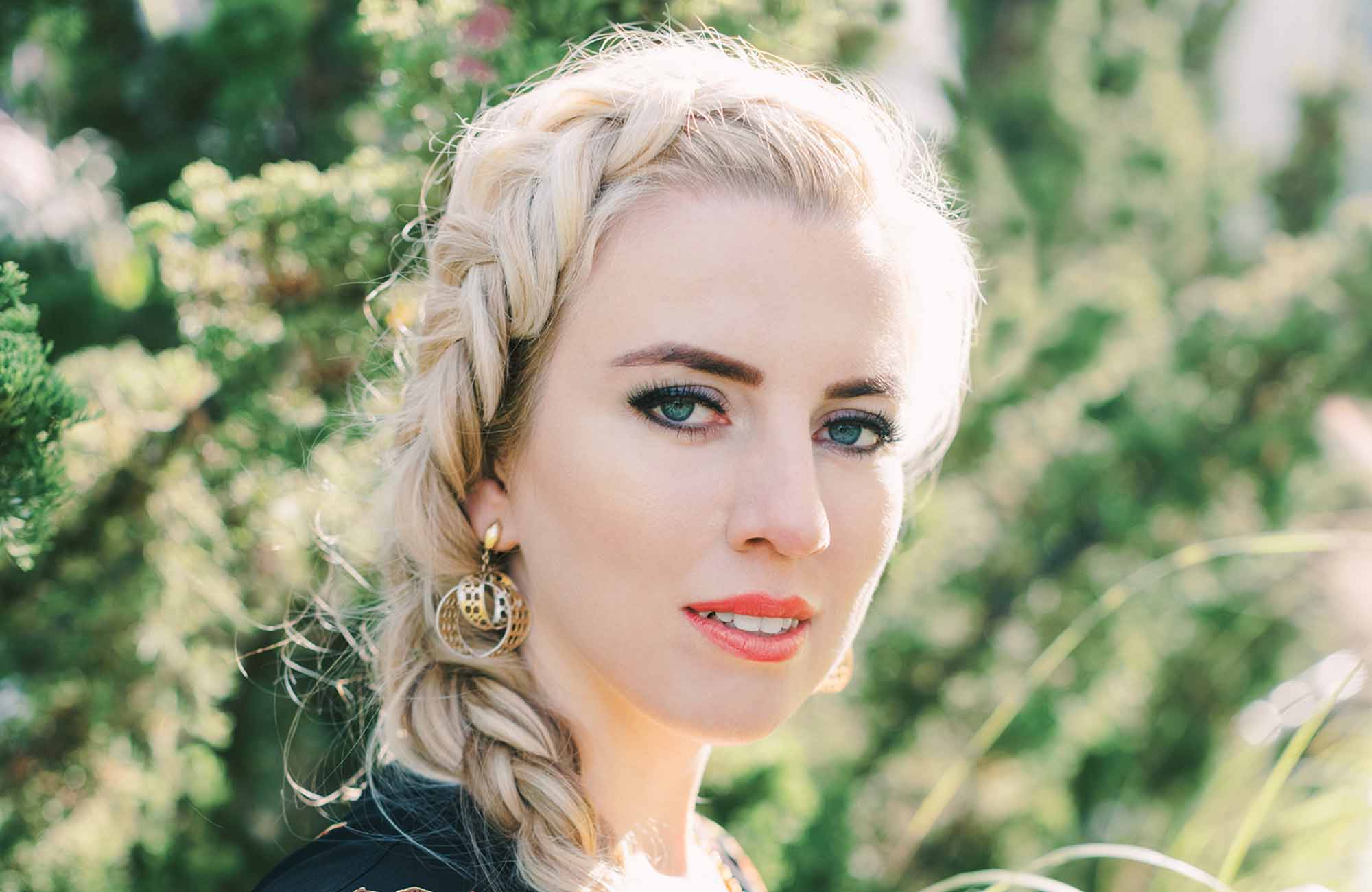
With her consistently striking and dynamic performances, pianist Natasha Paremski reveals astounding virtuosity and voracious interpretive abilities. She continues to generate excitement from all corners as she wins over audiences with her musical sensibility and powerful, flawless technique.
The 2018-19 season featured recitals in New York and ...
With her consistently striking and dynamic performances, pianist Natasha Paremski reveals astounding virtuosity and voracious interpretive abilities. She continues to generate excitement from all corners as she wins over audiences with her musical sensibility and powerful, flawless technique.
The 2018-19 season featured recitals in New York and Chicago in addition to concerto appearances in North America, Europe and South America. Her recording of Fred Hersch’s Variations on a Theme by Tchaikovsky – commissioned for her by the Gilmore Festival – was released in early 2019 on the Steinway & Sons label alongside Mussorgsky’s Pictures at an Exhibition. In 2019-20 she performs the Rachmaninoff cycle with Symphoria Syracuse, returns to Columbus Symphony, and will perform with the Knoxville, Jacksonville and Charleston Symphonies. She will also give a recital at Herbst Hall in San Francisco.
Natasha is a regular return guest of many major orchestras, including Minnesota Orchestra, San Francisco Symphony, Grant Park Festival, Winnipeg Symphony, Kitchener-Waterloo Symphony, Oregon Symphony, Elgin Symphony, Colorado Symphony, Buffalo Philharmonic, Virginia Symphony, and Royal Philharmonic Orchestra with whom she has performed every year since 2008 in venues such as Royal Albert Hall, Royal Festival Hall, and Cadogan Hall. She has performed with major orchestras in North America including Dallas Symphony Orchestra, Los Angeles Philharmonic Orchestra, San Diego Symphony, Toronto Symphony, Baltimore Symphony, Houston Symphony, NAC Orchestra in Ottawa, Nashville Symphony. She has toured extensively in Europe with such orchestras as Bournemouth Symphony Orchestra, Vienna’s Tonkünstler Orchester, Royal Scottish National Orchestra, Orchestre de Bretagne, the Orchestre de Nancy, Royal Liverpool Philharmonic Orchestra, Tonhalle Orchester in Zurich, Moscow Philharmonic, under the direction of conductors including Thomas Dausgaard, Peter Oundjian, Andres Orozco-Estrada, Jeffrey Kahane, James Gaffigan, JoAnn Falletta, Fabien Gabel, Rossen Milanov and Andrew Litton. In addition, she has toured with Gidon Kremer and the Kremerata Baltica in Latvia, Benelux, the United Kingdom and Austria as well as appearances with National Taiwan Symphony Orchestra in Taipei.
Natasha has given recitals at the Auditorium du Louvre in Paris, Wigmore Hall, Schloss Elmau, Mecklenburg-Vorpommern Festival, Verbier Festival, Seattle’s Meany Hall, Kansas City’s Harriman Jewell Series, Santa Fe’s Lensic Theater, Ludwigshafen BASF Series, Teatro Colon in Buenos Aires, Tokyo’s Musashino Performing Arts Center and on the Rising Stars Series of Gilmore and Ravinia Festivals.
A passionate chamber musician, Natasha is a regular recital partner of Grammy winning cellist Zuill Bailey, with whom she has recorded a number of CDs. Their Britten album on Telarc debuted at No. 1 on the Billboard Classical Chart, remaining there for a number of weeks, in addition to being featured on The New York Times Playlist. She has been a guest of many chamber music festivals such as Jeffrey Kahane’s Green Music Center ChamberFest, the Lockenhaus, Toronto, Sitka Summer Music, and Cape Cod Chamber Music festivals to name a few.
Natasha was awarded several prestigious prizes at a very young age, including the Gilmore Young Artists prize in 2006 at the age of eighteen, the Prix Montblanc in 2007, the Orpheum Stiftung Prize in Switzerland. In September 2010, she was awarded the Classical Recording Foundation’s Young Artist of the Year. Her first recital album was released in 2011 to great acclaim, topping the Billboard Classical Charts, and was re-released on the Steinway & Sons label in September 2016 featuring Islamey, recorded on Steinway’s revolutionary new Spirio technology. In 2012 she recorded Tchaikovsky’s Piano Concerto No. 1 and Rachmaninoff’s Paganini Rhapsody with Royal Philharmonic Orchestra and Fabien Gabel on the orchestra’s label distributed by Naxos.
With a strong focus on new music, Natasha’s growing repertoire reflects an artistic maturity beyond her years. In the 2010-11 season, she played the world premiere of a sonata written for her by Gabriel Kahane, which was also included in her solo album.
Natasha continues to extend her performance activity and range beyond the traditional concert hall. In December 2008, she was the featured pianist in choreographer Benjamin Millepied’s Danses Concertantes at New York’s Joyce Theater. She was featured in a major two-part film for BBC Television on the life and work of Tchaikovsky, shot on location in St. Petersburg, performing excerpts from Tchaikovsky’s First Piano Concerto and other works. In the winter of 2007, Natasha participated along with Simon Keenlyside in the filming of Twin Spirits, a project starring Sting and Trudie Styler that explores the music and writing of Robert and Clara Schumann, which was released on DVD. She has performed in the project live several times with the co-creators in New York and the U.K., directed by John Caird, the original director/adaptor of the musical Les Misérables.
Natasha began her piano studies at the age of four with Nina Malikova at Moscow’s Andreyev School of Music. She then studied at San Francisco Conservatory of Music before moving to New York to study with Pavlina Dokovska at Mannes College of Music, from which she graduated in 2007. Natasha made her professional debut at age nine with El Camino Youth Symphony in California. At the age of fifteen she debuted with Los Angeles Philharmonic and recorded two discs with Moscow Philharmonic Orchestra.
Born in Moscow, Natasha moved to the United States at the age of eight becoming a U.S. citizen shortly thereafter, and is now based in New York.
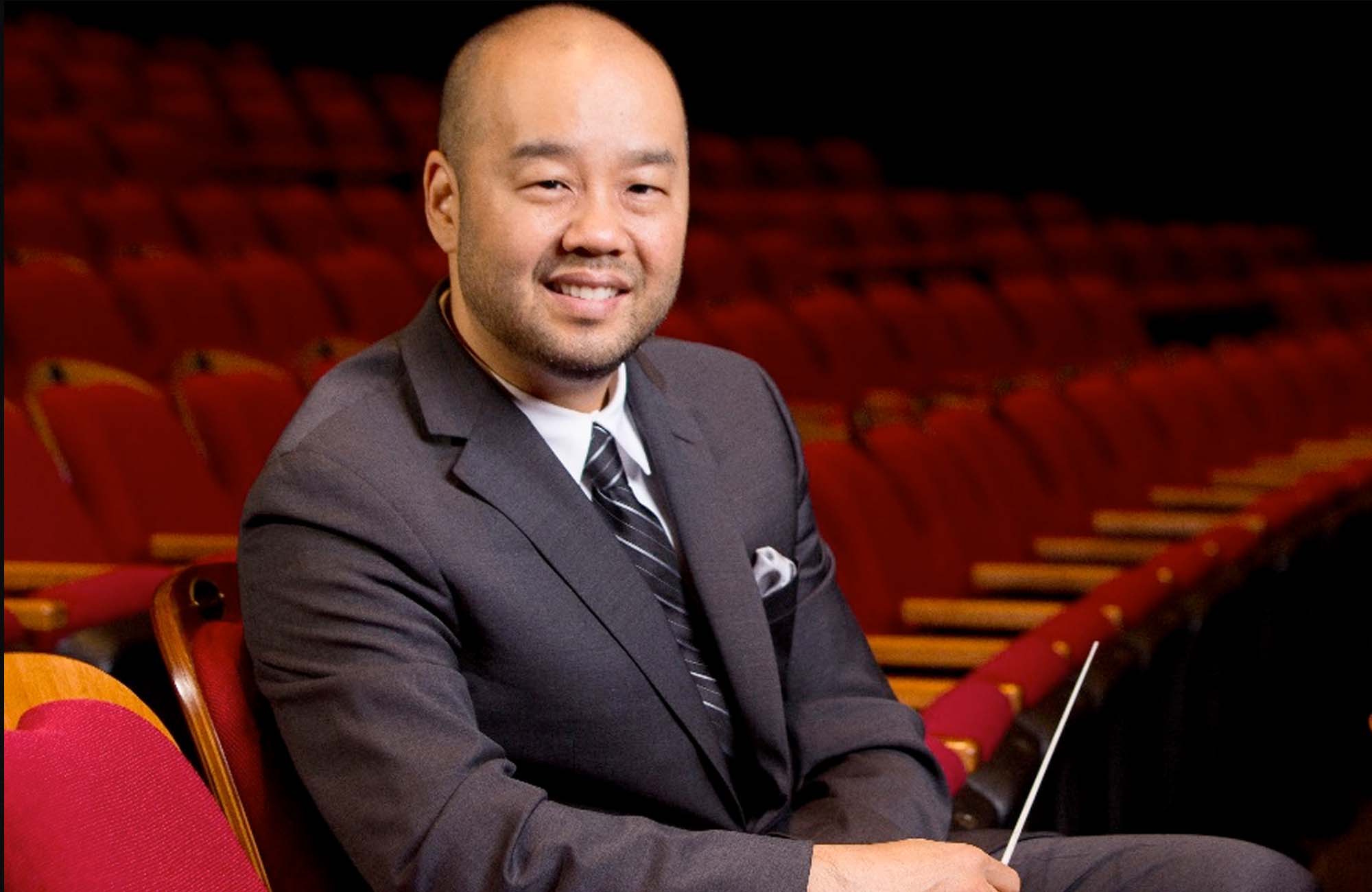
Described as bringing an “artisan storyteller’s sensitivity… shaping passages with clarity and power via beautifully sculpted dynamics… revealing orchestral character not seen or heard before” (Arts Knoxville) Lawrence Loh enjoys a dynamic career as a conductor of orchestras all over the world.
After an extensive two ...
Described as bringing an “artisan storyteller’s sensitivity… shaping passages with clarity and power via beautifully sculpted dynamics… revealing orchestral character not seen or heard before” (Arts Knoxville) Lawrence Loh enjoys a dynamic career as a conductor of orchestras all over the world.
After an extensive two year search, Lawrence Loh was recently named Music Director of the Waco Symphony Orchestra beginning in the Spring of 2024. Since 2015, he has served as Music Director of The Syracuse Orchestra (formerly called Symphoria), the successor to the Syracuse Symphony Orchestra. “The connection between the organization and its audience is one of the qualities that’s come to define Syracuse’s symphony as it wraps up its 10th season, a milestone that might have seemed impossible at the beginning,” (Syracuse.com) The Syracuse Orchestra and Lawrence Loh show that it is possible to create a “new, more sustainable artistic institution from the ground up.”
Appointed Assistant Conductor of the Pittsburgh Symphony in 2005, Mr Loh was quickly promoted to Associate and Resident Conductor within the first three years of working with the PSO. Always a favorite among Pittsburgh audiences, Loh returns frequently to his adopted city to conduct the PSO in a variety of concerts. Mr. Loh previously served as Music Director of the West Virginia Symphony Orchestra, Music Director of the Northeastern Pennsylvania Philharmonic, Artistic Director and Principal Conductor of the Syracuse Opera, Music Director of the Pittsburgh Youth Symphony Orchestra, Associate Conductor of the Dallas Symphony Orchestra, Associate Conductor of the Colorado Symphony Orchestra and Music Director of the Denver Young Artists Orchestra.
Mr. Loh’s recent guest conducting engagements include the San Francisco Symphony, Dallas Symphony, North Carolina Symphony, Baltimore Symphony, Sarasota Orchestra, Florida Orchestra, Pensacola Symphony, Atlanta Symphony, National Symphony, Detroit Symphony, San Diego Symphony, Seattle Symphony, National Symphony (D.C.), Utah Symphony, Rochester Philharmonic, Indianapolis Symphony, Calgary Philharmonic, Buffalo Philharmonic, Albany Symphony and the Cathedral Choral Society at the Washington National Cathedral. His summer appearances include the festivals of Grant Park, Boston University Tanglewood Institute, Tanglewood with the Boston Pops, Chautauqua, Sun Valley, Shippensburg, Bravo Vail Valley, the Kinhaven Music School and the Performing Arts Institute (PA).
As a self-described “Star Wars geek” and film music enthusiast, Loh has conducted numerous sold-out John Williams and film music tribute concerts. Part of his appeal is his ability to serve as both host and conductor. “It is his enthusiasm for Williams’ music and the films for which it was written that is Loh’s great strength in this program. A fan’s enthusiasm drives his performances in broad strokes and details and fills his speaking to the audience with irresistible appeal. He used no cue cards. One felt he could speak at filibuster length on Williams’ music.” (Pittsburgh Tribune)
Mr Loh has assisted John Williams on multiple occasions and has worked with a wide range of pops artists from Chris Botti and Ann Hampton Callaway to Jason Alexander and Idina Menzel. As one of the most requested conductors for conducting Films in Concert, Loh has led Black Panther, Star Wars (Episodes 4-6), Jaws, Nightmare Before Christmas, Jurassic Park, Casablanca, The Wizard of Oz and Singin’ in the Rain, among other film productions.
Lawrence Loh received his Artist Diploma in Orchestral Conducting from Yale, his Masters in Choral Conducting from Indiana University and his Bachelor of Arts from the University of Rochester. Lawrence Loh was born in southern California of Korean parentage and raised in Carlisle, Pennsylvania. He and his wife Jennifer have a son, Charlie, and a daughter, Hilary. Follow him on instagram @conductorlarryloh or Facebook at @lawrencelohconductor or visit his website, www.lawrenceloh.com


